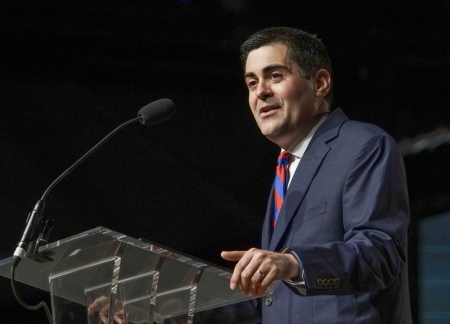Russell Moore on Political Issues Pastors Must Address From the Pulpit

Russell Moore, president of the Southern Baptist Convention's Ethics & Religious Liberty Commission, discusses the types of political issues that pastors should address in their congregations and which ones to avoid.
In a video posted on the website For The Church, last week, Moore addresses the question: "How political should a local pastor get with his flock?"
Christians are sometimes reluctant to engage political questions, says Moore, because they "put this artificial barrier between personal morality and social ethics in a way that the prophets, in a way that Jesus, in a way that James don't."
"If you're in 19th century Burma and you have widows being burned on the funeral pyres of their husbands, you can't say 'That's a political issue I'm not going to touch it.' You have to speak to that and say, 'This is wrong,'" said Moore.
"If you're in 19th century America and you don't speak to the issue of human slavery because you say, 'Well, that's political,' then you are leaving people's consciences burdened as they stand before the Judgment Seat and you're not equipping them with that."
As an example, Moore said, "I'm not going to tell a single guy in my church who he should marry, but I'll give him general biblical principles about how to find a wife."
Other issues are not so specifically outlined in the Word of God, he continued, and are a matter of applying principles and there is room for sincere philosophical disagreement, including whether or not raising the minimum wage truly benefits the poor.
Questions about the role of faith in politics have arisen in this election season as evangelicals grapple with their influence in the larger culture.
The Christian Post contacted Moore on Friday for further comment about the reluctance some evangelicals exhibit when it comes to engaging political issues in the church, but he was unable to respond by press time.
However, in a June 21 post on his website Moore address political and cultural engagement by saying: "As Christianity grows strange to a secularizing culture, we are free to be prophetic. This means we will live in the tension between prophetic distance and prophetic engagement. We are prophetically distant, in that we don't become court chaplains for anybody's political or economic faction.
"We're prophetically engaged in that we see the connection between Gospel and justice, just as our forebears in the abolitionist and Civil Rights and pro-life activist communities did. The priority of the Gospel doesn't mean that we shrug off injustice or unrighteousness, but it means we fight a different way."






















